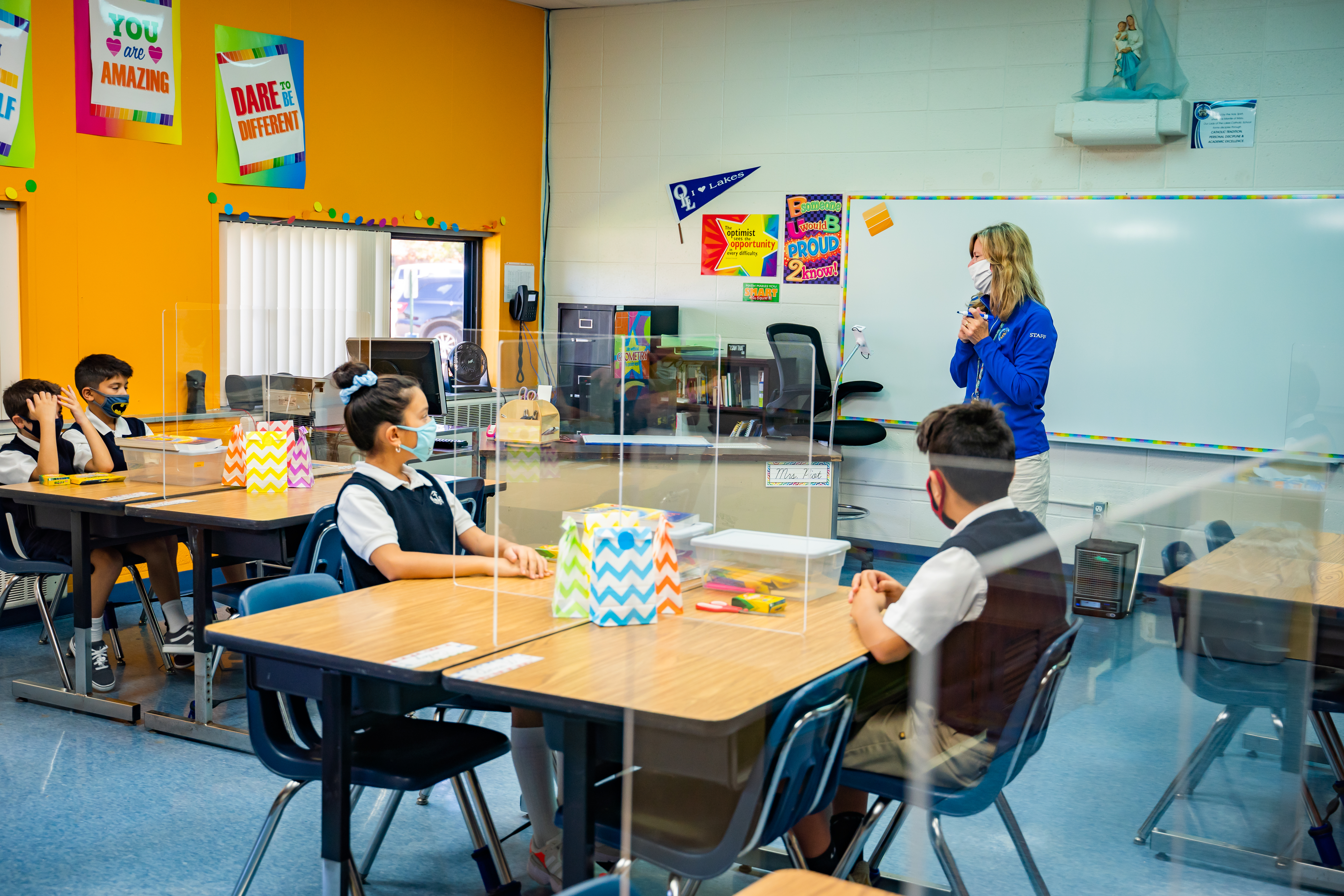Teachers in the Archdiocese of Detroit can inspire, form students they teach with the timeless truths of the Gospel, archbishop says
DETROIT — Catholic school educators should instill within their students a deep respect for the dignity of the human person, Archbishop Allen H. Vigneron and subsequent speakers said Feb. 8 during the annual Archbishop’s Catechetical Day for Teachers.
Addressing teachers in Catholic schools across the archdiocese during the virtual conference — which usually takes place in the fall in person but was moved this year because of the pandemic — the conference began with remarks from Kevin Kijewski, superintendent of schools, who noted the day’s feast of St. Josephine Bakhita, “whose life and experiences opened the doors to understanding the depths of human dignity.”
Archbishop Vigneron noted with gratitude the deep impact that educators in the Archdiocese of Detroit have on the lives of both their students and families.
Reflecting on Jesus’ words in Matthew’s Gospel that “I was thirsty and you gave me drink,” the archbishop said educators offer the living water of Christ to the students they teach and form.
“As our souls thirst for our creator, he in turn thirsts for us,” the archbishop said. “It is this relationship with God that you continue to cultivate and share with others through your vocation as joyful missionary disciples in our schools. As educators, you are giving something to drink to those thirsting, regardless of which grade level or subject you teach.”
The Catholic faith is not only found through religious class, Archbishop Vigneron said, but is woven throughout the entire school community and curriculum.
“So today we celebrate you are who are pointing your students and families to the one who will quench the thirst of their souls,” the archbishop said.
Those tuning into the conference also heard from Sr. Fidelity Grace, SV, who joined the Sisters of Life in 2015 and lives at their motherhouse in Suffern, N.Y. Human dignity is not conditional as the world would have people believe, she said.
“The council fathers at Vatican II stated it beautifully and clearly: ‘The dignity of man rests above all in the fact that he is called to communion with God,’” Sr. Fidelity said. “So whatever the circumstances surrounding our conception, no one is an accident in the eyes of the creator. Every person in human history is uniquely good.”

Deacon Harold Burke-Sivers spoke about the life of the first black priest in the United States, Fr. Augustus Tolton.

The world desperately needs to be reminded of this, Sr. Fidelity said.
“You called to be on the front lines of building this culture of life, and building this culture takes care,” Sr. Fidelity told the teachers.
Catholic educators have a privilege and responsibility to proclaim these truths to the students entrusted in their care, she said.
“The most important thing you can do during your tenure in education is to bring young people to know God and their own goodness,” Sr. Fidelity said. “At the end of the day, Catholic schools are not merely preparation for college but for heaven, and your goal is not only to form national merit scholars and state champions but to form saints. It’s not only dumping information into the brains of little ones, but it is sculpting each person in front of you.”
In his keynote address, Deacon Harold Burke-Sivers, the popular EWTN host and author of multiple books, used the life of the first black priest in the United States, Venerable Fr. Augustus Tolton, to delve further into this point.
Fr. Tolton was born into slavery and overcame incredible odds to receive an education and become a priest, Deacon Burke-Sivers said. Despite continued disappointments and rejections, when Fr. Tolton eventually had his own parish, he “created an environment where anyone who wanted to deepen their love of Christ and knowledge of the faith was welcome.”
Deacon Burke-Sivers told catechists they will have an impact on students, even among those who seem like a lost cause or who don’t express gratitude. He emphasized that children want to be told the truth.
“The Church can’t do it without you,” Deacon Burke-Sivers said. “We can’t just rely on the hierarchy. The work that you are doing will help people fall in love (with the Lord).”
Fr. Tolton never gave up on his faith even when those in the Church rejected him and acted in a racist manner, counter to the beauty and truth of the Church, Deacon Burke-Sivers said.
“The lesson of Fr. Tolton’s life is that sometimes God humbles us to exalt us,” the deacon said. “In his suffering, he reminds us that living in the heart of God means uniting ourselves to the cross of Christ. The journey of our faith starts with each one of us living, acting and being in God’s truth and God’s love.”










